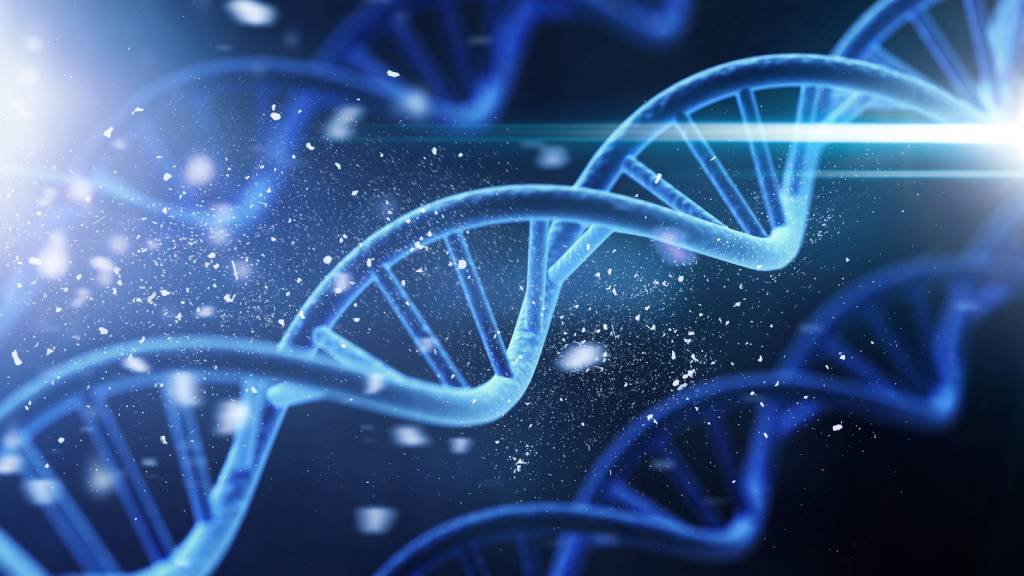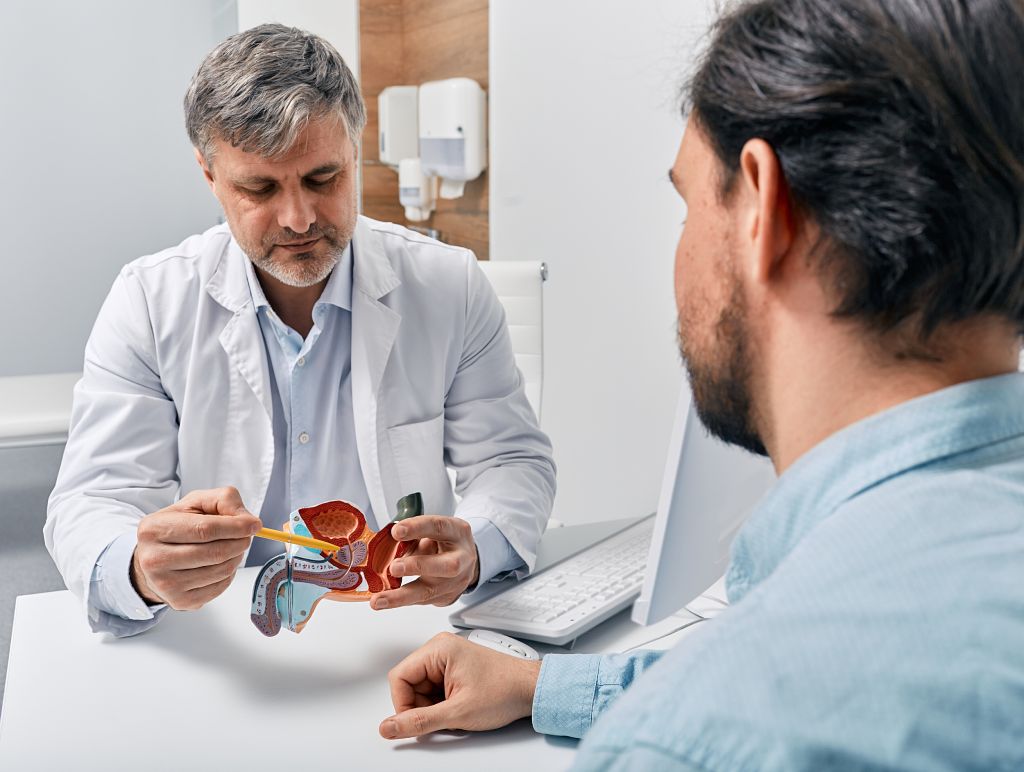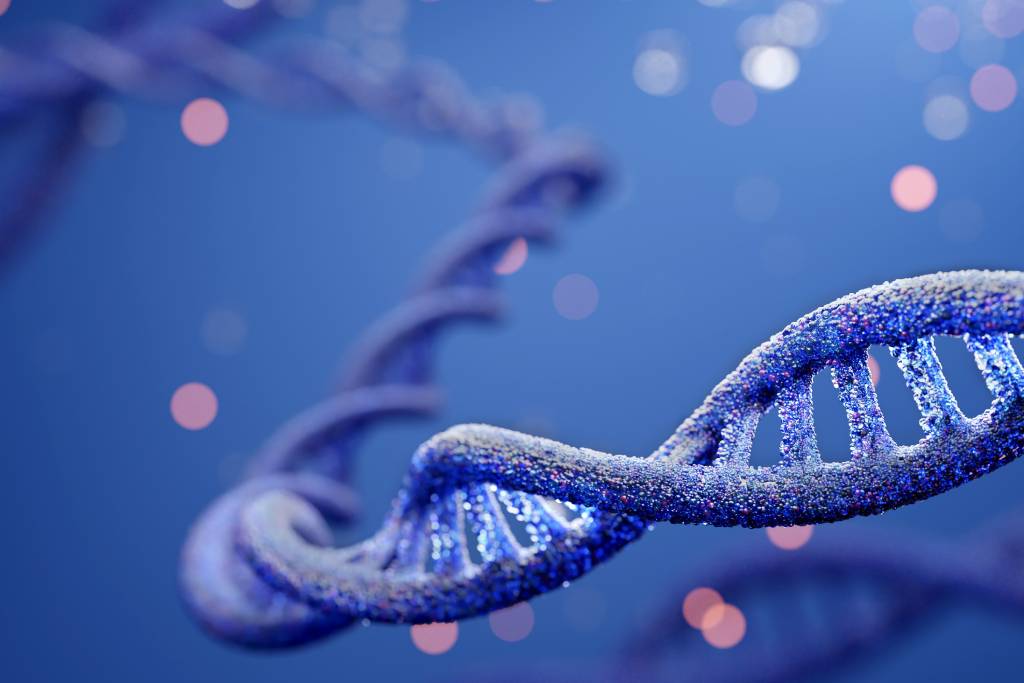Summary: Many ask, is prostate cancer genetic? The answer is partly yes. About 5–20% of cases are linked to inherited gene mutations like those in the BRCA1, BRCA2, ATM, CHEK2, and HOXB13 genes. While genetics can raise risk, most prostate cancer cases do not have a known hereditary gene contribution, and lifestyle factors still play a major role.
- Genetic risk: Inherited mutations can increase susceptibility, but don’t guarantee developing prostate cancer.
- Family history: Having relatives with prostate cancer raises risk, especially if diagnosed before age 65.
- Environmental factors: Age, lifestyle, diet, and smoking also strongly influence risk.
- Testing & prevention: Genetic testing helps guide early screenings and targeted therapies.
- Key takeaway: Prostate cancer can be hereditary, but most cases develop from a mix of genetic and environmental factors.
Is prostate cancer genetic? The simplest answer to this question is that gene mutations can increase the risk of developing prostate cancer. Some cases of prostate cancer are influenced by inherited gene mutations.
It’s crucial to remember that genetics is a significant factor in terms of prostate cancer risk and the development of this disease, but it is not the only one. Additionally, family genetics that increase the risk of prostate cancer are not a guarantee that an individual will develop prostate cancer.
Keep reading to learn more about the role of inherited genetics in prostate cancer and the risk factors associated with this disease.
Understanding Prostate Cancer: Risk Factors and Causes
What Is Prostate Cancer?
Prostate cancer refers to the uncontrolled growth of abnormal cells in the prostate gland. It is both a very common cancer among men and one with a high overall survival rate. The five-year relative survival rate for prostate cancer is 99% when the cancer is in the local or regional stage, as the American Cancer Society explains.
The prostate gland itself is part of the male reproductive system. It is positioned below the bladder and in front of the rectum, surrounding the urethra. Its functions include contributing fluid to semen and supporting the movement of semen through the urethra.
Prostate cancer often, although not always, grows slowly – some forms can be aggressive. Early detection through regular screenings can identify prostate cancer before it spreads, allowing patients more options for treatment.
The exact cause of prostate cancer is not yet known. However, a variety of risk factors increase the possibility of prostate cancer developing.
Risk Factors for Prostate Cancer
Risk factors for prostate cancer include modifiable factors, such as obesity, smoking, and diets high in certain foods, such as processed meats. Several non-modifiable risk factors can also increase the possibility of developing prostate cancer.
More specifically, risk factors for prostate cancer include:
- Age. Prostate cancer is more likely to develop as men age, even in otherwise healthy men. This form of cancer is rare in men under age 40, but increases for men at age 50 and beyond, as the American Cancer Society explains.
- Family History. When a blood relative has developed prostate cancer, individuals face an increased risk level.
- Inherited Gene Mutations. Some gene mutations increase the risk of prostate cancer. This is a simple answer to the question of whether prostate cancer is genetic, which is explored in more depth in the next section of this article.
- Race And Ethnicity. Men with African ancestry have a higher risk of prostate cancer than many other groups of men.
- Diet. Certain foods, such as processed meats, alcohol, and dairy, can increase prostate cancer risk.
- Lifestyle. Certain lifestyle factors, such as smoking and obesity, can cause a higher risk of prostate cancer.
Is prostate cancer hereditary? While inherited risk factors are not the only cause of prostate cancer, they play a role in the development of some instances of prostate cancer. Read the next section to learn more.
Is Prostate Cancer Genetic?
What Science Says About the Hereditary Risk of Prostate Cancer
Is prostate cancer inherited? There are a few key elements to keep in mind for a complete answer to this question:
- Inherited gene mutations that increase the risk of prostate cancer are a recognized factor in the medical and scientific communities. Some inherited gene mutations can predispose individuals to prostate cancer.
- Genetic inheritance is only one of many risk factors for prostate cancer. Carrying certain gene mutations is not a guarantee that an individual will develop prostate cancer.
The exact level of risk presented by specific inherited gene mutations varies. However, the overall influence of a genetic or hereditary component in prostate cancer is recognized as significant but is only directly attributable in a minority of total cases.
A 2021 article published in the peer-reviewed International Journal of Molecular Sciences further explains this level of risk. “The proportion of [prostate cancer] attributable to hereditary factors has been estimated in the range of 5-15%.”
A separate article published in 2020 in the same journal offers a slightly different percentage for the genetic risk of prostate cancer. “A significant proportion of [prostate cancer] susceptibility has been attributed to inherited predisposition, with 10–20% of cases expected to occur in a hereditary/familial context.”
Gene Mutations that Influence the Risk of Prostate Cancer
Specific hereditary gene mutations that can increase the risk of prostate cancer include, but are not limited to:
- BRCA1 and BRCA2. These genes help to repair damaged DNA. Mutations in these genes can increase the risk of breast and prostate cancer in men and lead to an earlier onset of the disease.
- ATM. This gene also helps repair damaged DNA. Mutations in this gene increase the risk of prostate cancer and can cause an earlier onset.
- CHEK2. This is another gene that helps repair damaged DNA. Similarly, mutations in this gene can increase the risk of prostate cancer.
- HOXB13. This gene plays a key role in tumor suppression and is thought to contribute to the development and maintenance of the skin. Mutations to this gene can cause an increase in the risk of prostate cancer.
Genetic testing for prostate cancer can help identify gene mutations, giving patients and physicians more context about risk, decisions related to earlier screening (such as PSA screening), and treatment options. For example, genetic testing can determine if certain targeted therapies – medicines that address or mitigate issues caused by specific gene mutations – are useful on the individual level.
Is Prostate Cancer Inherited?
Prostate cancer risk increases when individuals have a blood relative, such as a father or uncle, who has or had this disease. Prostate cancer can be inherited in this sense, although a blood relative who has or had prostate cancer does not guarantee that prostate cancer will develop in a specific individual.
Prostate Cancer: Genetics vs. Environment
A genetic predisposition for prostate cancer does not guarantee that this disease will develop in an individual. Instead, genetic risks increase the lifetime risk of prostate cancer. Lifestyle and environmental factors still play key roles, and addressing modifiable risk factors can reduce the overall risk of prostate cancer. Remember that the majority of prostate cancer cases are not related to inherited factors.
Frequently Asked Questions About Genetic Risk for Prostate Cancer
Is prostate cancer caused by inherited risk factors?
Prostate cancer can be caused by inherited risk factors. These include specific gene mutations, such as mutations of the HOXB13 and BRCA1 and BRCA2 genes, among others. However, inherited risk factors are not the only cause of prostate cancer. A majority of prostate cancer cases are not connected to hereditary factors.
It’s more accurate to say that prostate cancer risk levels are influenced by inherited risk factors, as opposed to saying prostate cancer is caused by inherited risk factors. While inherited genetic mutations cause some instances of prostate cancer, they only represent a minority (roughly 5%-20%) of all cases.
How to limit prostate cancer risk if hereditary factors exist?
Prostate cancer can still be detected and treated even when an individual’s risk factor is elevated due to hereditary or genetic factors. To reduce the overall risk of prostate cancer, focus on controllable factors for prevention.
Actions to consider include maintaining a healthy weight, eating a plant-rich diet, exercising regularly, and following a screening schedule tailored to your risk level. Discussing screening and prevention with a physician is crucial to building a plan that takes personal risk factors into account.
What is considered a strong family history of prostate cancer?
A strong history of prostate cancer generally refers to situations where an individual has many relatives who have or had prostate cancer. Multiple blood relatives on the same side of the family diagnosed with prostate cancer, especially before age 65, signal a strong family history.
Why are so many men getting prostate cancer?
Prostate cancer risk increases significantly with age. As men live longer and screening and detection methods for prostate cancer improve, more cases of prostate cancer are identified. Additionally, certain lifestyle factors that increase prostate cancer risk may contribute to increased rates of this disease.
What kills prostate cancer cells naturally?
There is no food or supplement that is guaranteed to prevent or successfully treat cancer. However, certain compounds found in cooked and processed tomatoes (lycopene) and in cruciferous vegetables (sulforaphane) may help protect against cancer, as Johns Hopkins explains.
Prostate Cancer Treatment Options
Prostate Laser Center offers qualifying patients minimally invasive, MRI-guided treatment options for prostate cancer. To find out more about our approach to prostate cancer treatment and to determine if you qualify as a patient, request a complimentary consultation.
NOTE: The information provided on this website is general medical information and does not establish a physician-patient relationship. Please discuss your particular situation with a qualified medical professional.



